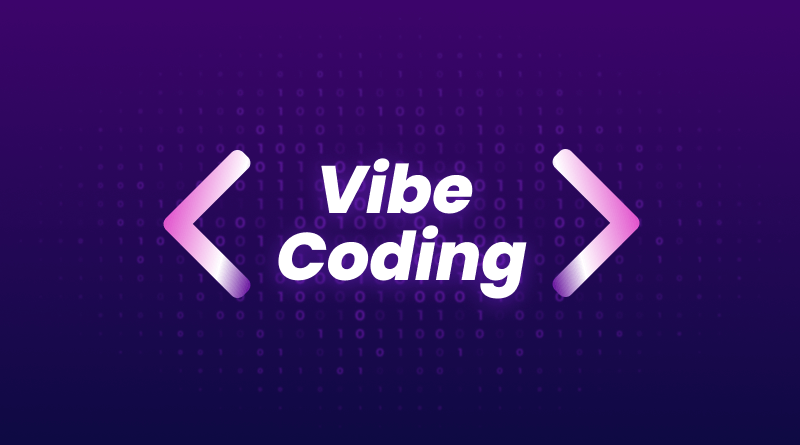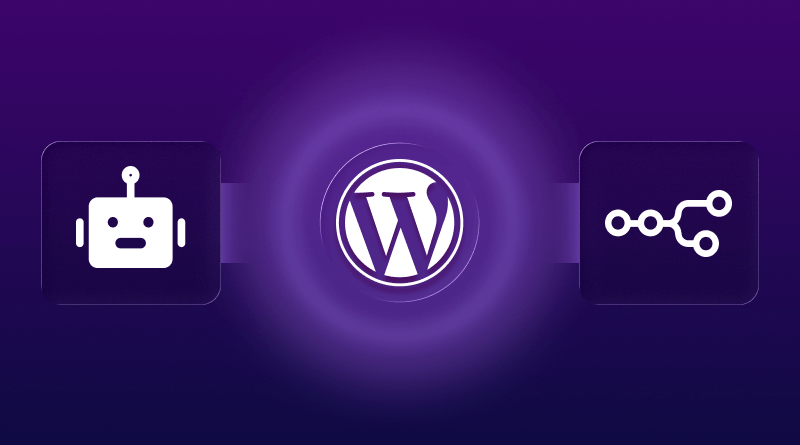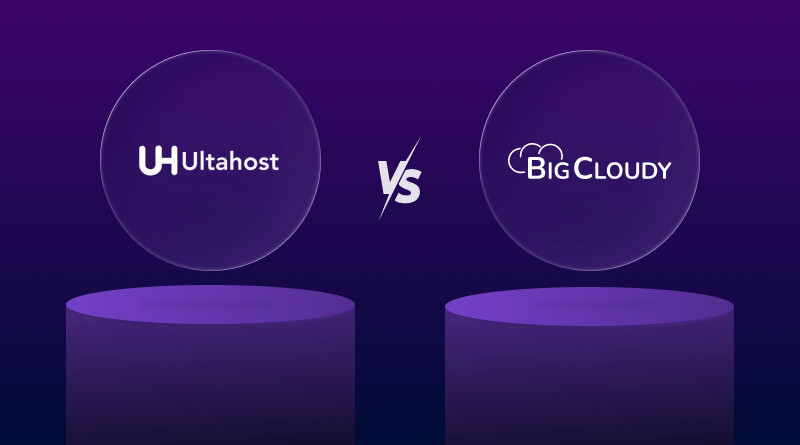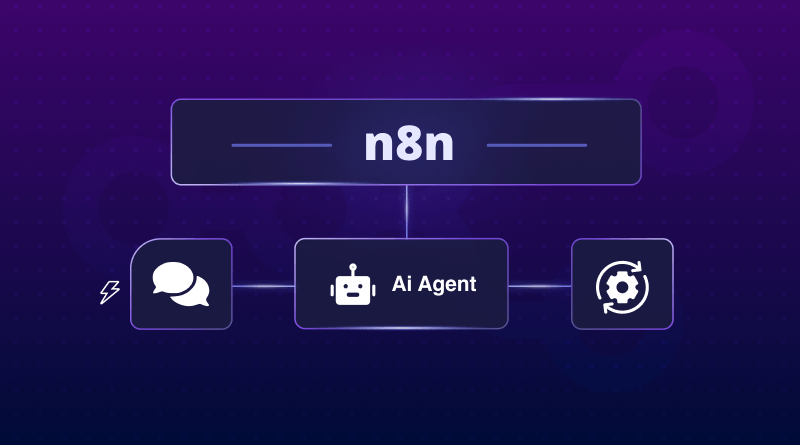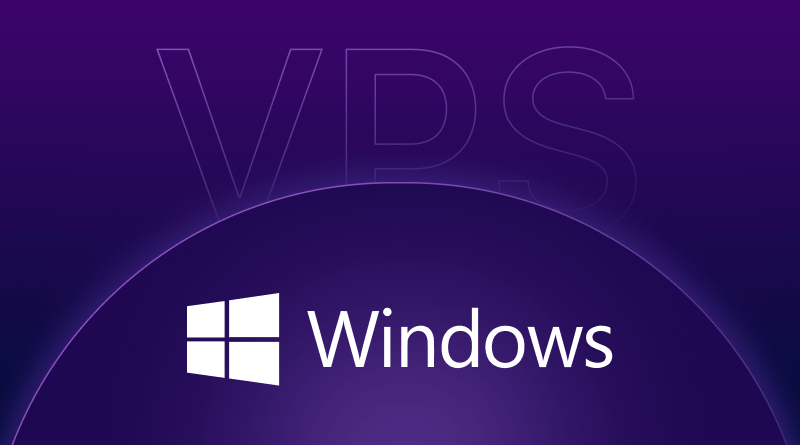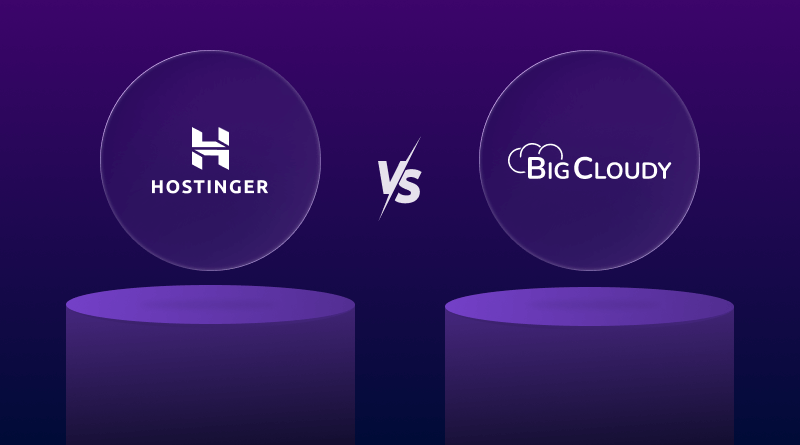
People searching Hostinger vs BigCloudy want a fast, practical answer: which host gives better real-world performance, features, and value in 2026? This comparison includes speed tests, pricing breakdowns, uptime results, feature highlights, and a short verdict so you can choose quickly.
This comparison is built on facts, testing, and user experience, not slogans. It evaluates which platform provides greater value, faster performance, and stronger long-term reliability across global audiences.
By the end of this analysis, you’ll know:
- The actual cost difference once promotional pricing expires
- Which host offers faster, more stable performance worldwide
- How beginner-friendly the setup and management experience is
- Which platform provides better support and resilience during issues
Let’s examine, with complete transparency, which hosting provider stands out as the most dependable Hostinger alternative.
Quick Verdict- Who to choose
Choose Hostinger if: You want a fuller all-in-one dashboard with multi-region plans.
BigCloudy: Better speed & performance for budget sites. Great for WordPress (NVMe + LiteSpeed).
Hostinger: Larger brand, broader global footprint, packaged tools and marketing features.
Choose BigCloudy if: You want max performance on a budget.
Quick Summary: Hostinger vs BigCloudy
Hostinger is a well-known global host with lots of marketing, easy-to-use beginner tools, and a strong reputation.
BigCloudy is the challenger built for smarter value, providing more resources per plan, NVMe-powered infrastructure, transparent pricing, and human-based support tailored for global customers.
- Hostinger:
Great for absolute beginners chasing low entry prices and global availability.
- BigCloudy:
Better long-term value, stronger storage headroom, daily backups, and performance that scales.
Pricing & Affordability
When people search for Hostinger’s cheapest hosting, they usually find those too-good-to-be-true deals. Here’s the honest comparison.
| Feature | Hostinger | BigCloudy |
|---|---|---|
| Starting Price | $2.49/mo (long-term) | $1.19/mo |
| Storage | 20 GB NVMe SSD | 60 GB NVMe SSD |
| Backups | Weekly (daily on higher tiers) | Daily (all plans) |
| Free Domain | 1 year (annual plan) | Included |
| Control Panel | hPanel | cPanel |
| Support | 24/7 chat | Real human, multi-region |
- Hostinger:
Attractive at sign-up, but renewal costs around $7–8 per month, depending on the plan. - BigCloudy:
Lower starting price is $1.19 per month, predictable renewals, and more resources, so fewer forced upgrades later.
Verdict:
- Hostinger has a low sign-up price, making it appealing for beginners, but renewals can jump to $7–8/month.
- BigCloudy offers lower starting prices, predictable renewals, and higher storage, which may be beneficial for long-term value
Web Hosting Performance & Global Speed Comparison:
Performance isn’t just about ping tests. It’s also about consistent speed and uptime across different regions.
Hostinger Performance:
- Global network, solid uptime reputation.
- Speed is great in Europe and North America, moderate in Asia.
- Some shared-plan users report resource throttling under high load.
BigCloudy Performance:
- NVMe-based infrastructure with region-optimized data centers (India, USA, UK, Netherlands, Sweden, Singapore).
- Fewer accounts per server, steadier speeds.
- Optimized for Core Web Vitals and SEO performance.
For global audiences, both hosts deliver decent reach. For South Asia, the Middle East, or Europe-adjacent traffic: BigCloudy’s latency advantage can mean faster first-byte times and better Lighthouse scores
Which hosting provider provides the best Features & Ecosystem?
| Category | Hostinger | BigCloudy |
|---|---|---|
| Free Domain | 1 year | 1 year |
| SSL Certificates | Free | Free |
| Backups | Weekly/daily (higher plans) | Daily (all plans) |
| Website Builder | AI Website Builder | WordPress, SitePad |
| Control Panel | hPanel (custom) | cPanel (industry-standard) |
| App Installer | 1-click, limited | Softaculous (450+ apps) |
| Staging Environment | Limited | Included |
| SSH & Git | On request | Included |
| Website Migration | Free (1 site) | Free & unlimited |
| PHP Selector | Auto | Manual version selector |
Hostinger Pros:
- Simple interface, built-in AI tools, free domain.
- Global CDN integration.
Hostinger Cons
- Weekly backups on basic plans.
- Daily backups only on upper tiers.
- Slower restore process (support ticket required).
BigCloudy Pros
- Daily automated backups with 1-click restore.
- Free domain & Migration
- cPanel: Easy-to-use, industry-standard control panel
- LiteSpeed Cache for WordPress, Git integration, staging, and SSH.
- Transparent resource limits.
BigCloudy Cons
- Slightly more advanced interface for complete beginners (cPanel may feel dense at first).
- Hostinger: Node.js hosting is only available on VPS plans, requiring multiple manual steps and configuration. This can be tricky for beginners or anyone targeting region-specific performance.
- BigCloudy: Node.js setup is available on both shared and VPS plans. One-click environment management, version selection, and region-optimized servers make deployment fast and easy, ideal for developers who want minimal setup time and smooth scaling.
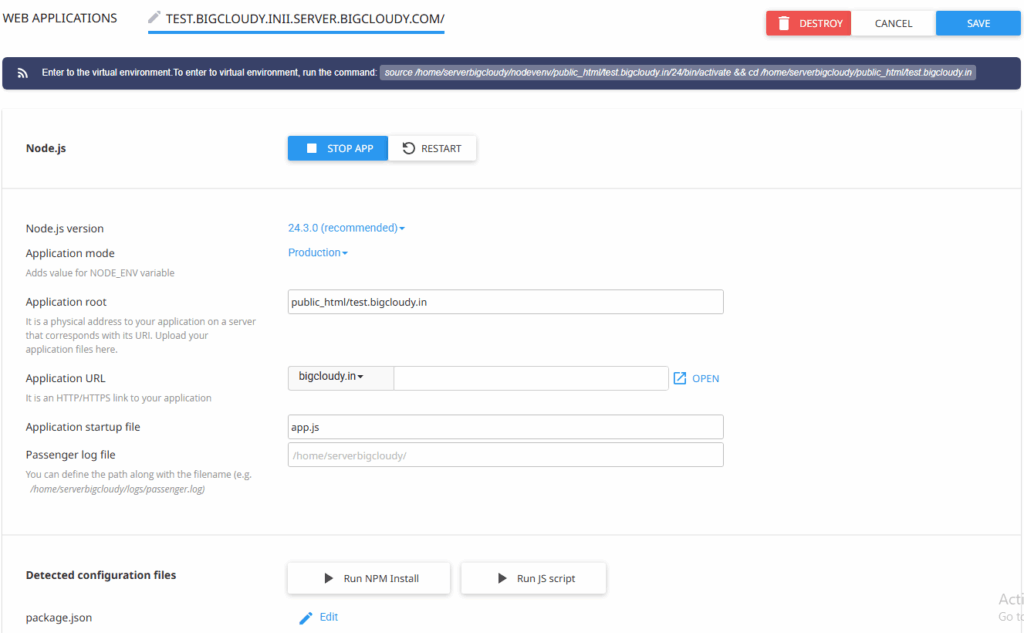
Hassle-Free Website & Domain Migration for Faster Setup
- BigCloudy: Migrating your website or domain is simple and often fully automated. Multiple site transfers are supported, reducing downtime and hassle.
- Other Hosts: Migration may be limited to one site per plan, involve manual steps, or require support tickets, making the process slower and more complex.
Hosting Support & Ease of Use Comparison: Hostinger vs BigCloudy
Hostinger Support
- 24/7 chat and a large knowledge base.
- Response times vary; some tickets close unresolved.
- Friendly but often scripted replies.
BigCloudy Support
- Real humans, not chatbots.
- Multi-region team familiar with global and Indian time zones.
- Response time: Usually, less than a minute.
- Technicians handle issues directly, not canned links.
Ease of Use
- Hostinger’s hPanel: simple and sleek, ideal for first-timers.
- BigCloudy’s cPanel: industry standard, compatible with most tutorials and tools.
- Verdict: Hostinger is slightly easier for absolute beginners. BigCloudy delivers better expertise and faster real-world help once you move past how do I log in?
Scalability & Growth
- Hostinger: Works well for personal sites and small businesses. But once traffic grows, resource limits appear, and upgrades become necessary.
- BigCloudy: Offers more resources per plan and smoother upgrades to cloud tiers. Fewer throttling issues mean better stability during seasonal spikes.
- Verdict: If your website is expected to grow, BigCloudy gives a longer runway before you outgrow your plan.
Final Verdict: Hostinger vs BigCloudy Hosting
Choose Hostinger if:
- You want the lowest entry price ($2.49/mo)
- You’re a beginner and prefer a simple setup
- Your audience is global (Europe & North America)
- You don’t mind weekly backups and occasional support delays
Choose BigCloudy if:
- You want a cheaper starting price ($1.19/mo) with predictable renewals
- You need daily backups & quick restore
- You value real human support across regions
- Your site targets Asia/South Asia or requires more storage & resources
- You want an easy Node.js setup and hassle-free migration
Bottom Line:
- BigCloudy offers more value, stability, and transparency for serious creators, startups, and businesses planning long-term growth.
- Hostinger is a fine global brand for first-timers chasing the lowest signup cost.
Is BigCloudy the best alternative to Hostinger?
- Hostinger: A popular global hosting provider known for beginner-friendly tools, solid uptime, and affordable introductory pricing. However, renewal costs can increase significantly, and backups on lower plans are limited, which may affect long-term reliability.
- BigCloudy:
A growing Hostinger alternative offering daily backups on all plans, faster NVMe SSD performance, predictable renewals, and real human support. It provides more resources per plan, consistent global speed, and long-term stability, making it a smarter choice for creators, startups, and businesses planning global growth.
Depends on what you value. Hostinger is great for global beginners. BigCloudy is better for steady, region-tuned performance and higher resource limits.
Hostinger’s shared hosting plans begin at $2.49/month on a long-term basis, whereas BigCloudy begins at $1.19/month and includes daily backups, 60GB NVMe storage, and transparent renewal pricing. Hostinger renewal rates can climb after the first term; however, BigCloudy keeps them consistent.
Hostinger includes weekly backups on entry-level plans and daily backups only on premium tiers. BigCloudy offers daily automated backups with one-click restore on every plan, reducing downtime and risk of data loss.
Hostinger has 24/7 live chat, but users sometimes report slower responses or scripted replies. BigCloudy offers real human support teams across regions, ensuring faster, localized help when issues arise.
For beginners with a tight budget, Hostinger works fine initially. For scalability, reliable performance, and consistent pricing, BigCloudy delivers stronger long-term value.


